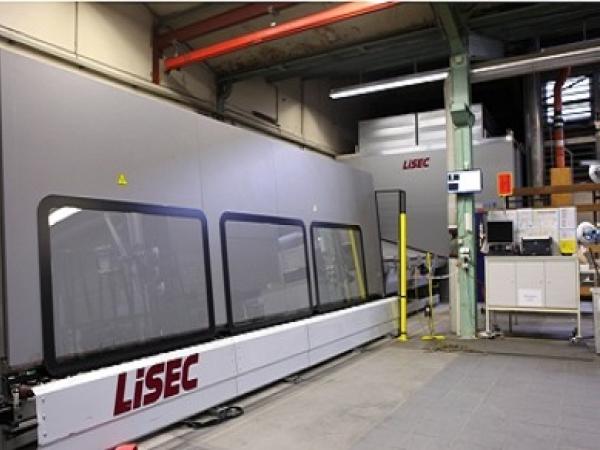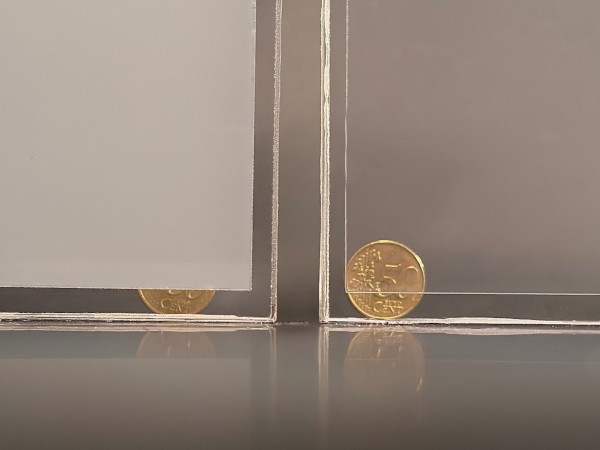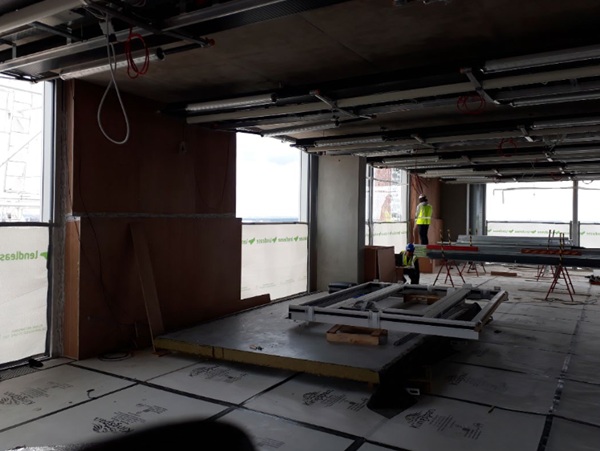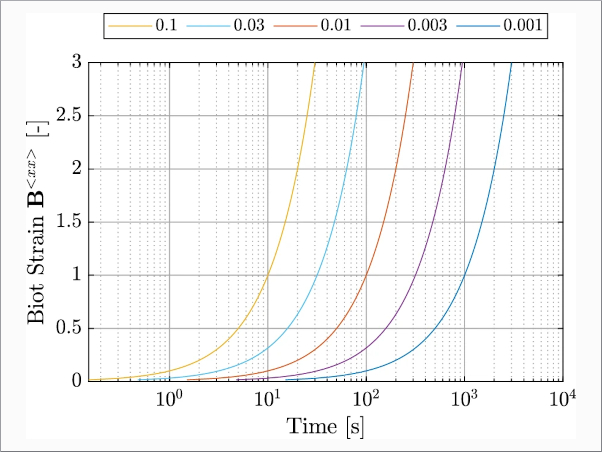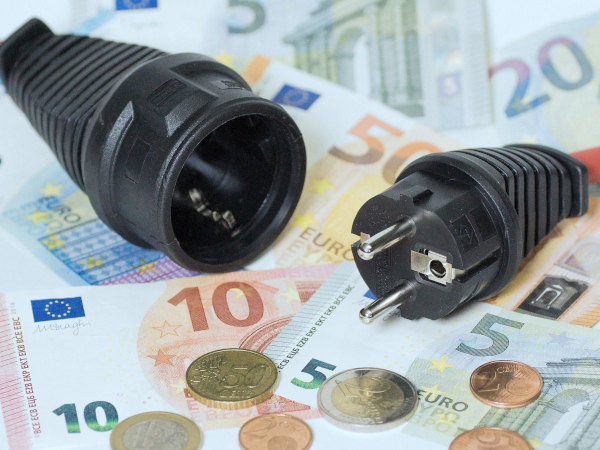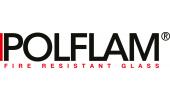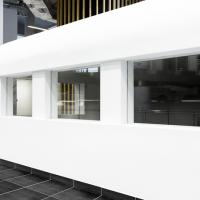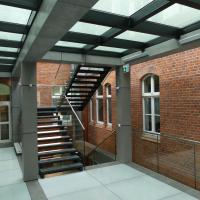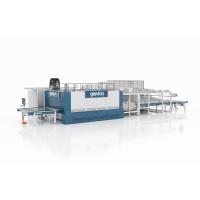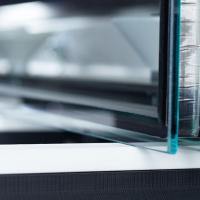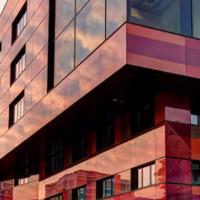This site specialises in the production of special glass & safety glass for façades and interiors as well as for rail vehicles. The product range includes, among others, special sheets of glass for emergency exits for high-speed trains.
The team in Wernberg has a tempering furnace and its own centre of excellence for colour and printing and offers silk screening and digital printing on glass and foil. This site is able to produce everything from a single source (tempered glass, laminated glass, and insulating glass units) and is therefore able to complete large projects independently.
Well-known customers include the German, Austrian, and Swiss national railways through Siemens and Alstom. Some of the best-known projects include the new suburban railway in Sochi, the European Central Bank and AIDA's headquarters in Hamburg.
Stefan HERRMANN, Head of Production, Flachglas Wernberg
LiSEC and Flachglas Wernberg have known each other for many years. Stefan Herrmann, Head of Production in Wernberg: "In 2010 we started talking about a tempering furnace and the installation was completed in 2012. We also successfully commissioned a LiSEC KBU system for edge processing a couple of weeks ago."
The Wernberg site specialises in the production of special glass & safety glass for façades and interiors as well as for rail vehicles.
The LiSEC tempering furnace put Flachglas Wernberg in the position to offer thin glass that is 2.3 millimetres thick. "Currently, only the LiSEC HAL tempering furnace is capable of this quality," explains Stefan Herrmann. The project involved quite a few difficulties due to a number of bottlenecks. For example, one challenge presented to LiSEC service engineers was the fact that the hall has a full basement.
Machinery of these dimensions actually requires foundations with certain properties. "We drew up and processed the specifications together. When the tempering furnace was finally installed and commissioned, the quality was up to scratch, which means that all of the values were within the scope of the agreed specifications.
Nevertheless, we were not totally satisfied with some visual properties," recalls Stefan Herrmann. "We received extremely good support from LiSEC during subsequent improvements. This kind of performance requires team work based on trust. LiSEC's service engineers are amazing: good technical knowledge, extremely cooperative and they are also still in touch with the guys in the team today, which is simply outstanding. To be concise: LISEC's employees don't just sell, they also exchange ideas, provide input and contribute their knowledge. You can tell what people know by what they do. This is pure operational know-how."
The LiSEC tempering furnace put Flachglas Wernberg in the position to offer thin glass that is 2.3 millimetres thick.
The key to success is having the flexibility to be able to react quickly to customers' enquiries. The key trends in the industry confirm this necessity, according to Stefan Herrmann.
Interview with Stefan Herrmann, Head of Production at Flachglas Wernberg.
LiSEC: What trends have you noticed and how do these influence your business?
S. Herrmann: We have noticed an important trend in the direction of individualisation. For example, an increasing number of customers have asked us about coloured safety glass. More and more customers want to be unique. Furthermore, the demand for safety glass continues to rise sharply overall.
Glass units featuring tempered layers are on the rise within the construction sector: Heat and sun protection layers are also processed in the furnace, whereas these layers used to be applied afterwards. This requires a flexible storage concept because increased variations need to be managed. Another trend can be observed in the increasing variety of glass types, where the tendency is clearly towards large formats and triple insulating glass.
LiSEC: How high is the entry threshold for companies that have not yet gained experience with tempering?
S. Herrmann: Investment is certainly a barrier, and power costs and cost-intensive retrofitting work for a more effective power line can also represent hurdles. Incidentally, I wouldn't recommend that anyone buys a Chinese furnace if they don't have any tempering experience because the topic can be extremely difficult without any support. It is important to purchase supporting know-how. This knowledge can't be developed or learned independently and people who know about the topic are needed.
LiMAG: Who provides support for the tempering furnace?
S. Herrmann: Our furnace is operated by a foreman who provides organisational support for all of our furnaces. He was also present during the tests and handover. The furnace is supported by glass technology process engineers and also by a couple of other trained persons (e.g. fitters, etc.).
LiMAG: What are the largest misconceptions regarding tempering?
S. Herrmann: One thing that is frequently forgotten is that a tempered glass sheet always has properties that a non-tempered sheet doesn't have, and by that I mean that there are multiple steps in the process and the glass sheet has already been very hot, which naturally changes its properties. Another misconception is the assumption that tempering thick glass is more expensive than tempering thinner glass. It is often forgotten that the majority of energy is required for cooling.
LiMAG: What makes LiSEC unique for you?
S. Herrmann: Their outstanding expertise, dedicated attitude towards service and their technical development potential. As an example of this I would like to mention the KBU: No other manufacturer offers a comparable product in this form. The KBU is rock-solid and offers numerous "technical treats".
About LiSEC
LiSEC, with headquarters in Hausmening/Amstetten, is a globally active group that has provided innovative individual and complete solutions in the field of flat glass production and finishing for more than 50 years. The business activities encompass machines, automation solutions and services. In 2013 the group generated a total turnover of around 200 million euros with around 1,600 employees and over 30 sites, with an export quota of more than 90 percent.
LiSEC develops and manufactures glass cutting systems and sorting systems, individual components and complete production lines for insulation and laminated glass production as well as glass edge machining systems and tempering furnaces. With reliable technology and intelligent automation solutions LiSEC sets the standard in quality and technology, contributing significantly to the success of their customers.
For further information, please contact:
Filip MIERMANS
Head of Corporate Communications and Marketing
LISEC Austria GmbH
Peter-Lisec-Str. 1 – 3353 Seitenstetten
Tel.: +43 7477 405-1151
filip.miermans@lisec.com – www.lisec.com


